Norms never held her back: Championship horsewoman, groundbreaking feminist, daring travel writer
Diane LeBow was a solo traveler when “one was an odd number for a woman traveler,” she has written. And she visited countries and people not on the typical tourist list: Libya, Morocco, Syria, Sulawesi, Indonesia, Mongolia, and Afghanistan.
She stayed from weeks to months, got to know the locals, and had romances with some. Today, she is president emerita of Bay Area Travel Writers. Her stories and photographs have been widely exhibited and published. Her first book, the 2021 “Dancing on the Wine-Dark Sea: Memoir of a Trailblazing Woman’s Travels, Adventures and Romance,” is an international Book Awards finalist.
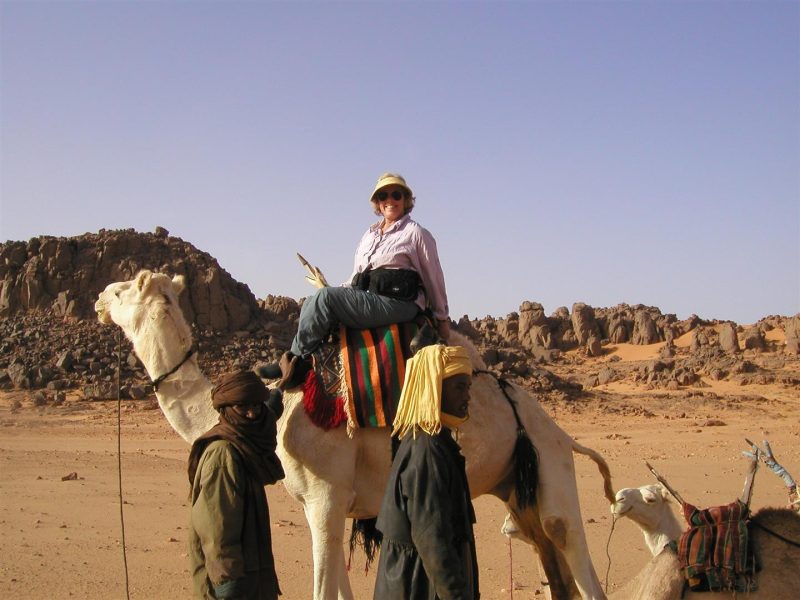
LeBow was a daring traveler. She dove with sharks, shared a meal with Corsican rebels, rode a stallion in a blizzard on the Mongolian steppes, assisted in writing a declaration of women’s rights for the 2001 Afghan constitution, and savored a few love affairs. One was with a French baron she met at an airport check-in. He suggested he help her with her luggage and sit together on the flight. “I felt as if we were acting out a Henry James novel,” said LeBow, who speaks several languages including French.
Now 82, LeBow is anticipating her next trips. First, a little rest and relaxation in Ensenada, Mexico, while her knee heals from recent surgery, then a postponed African safari.
An influential aunt
Inspiration for travel and adventure came early, from family matriarch Aunt Bea, owner of an international shoe exporting business who traveled the world and was, along with her husband, “a great storyteller.” When LeBow graduated from Rutgers University in 1961, Bea got her into a six-week grand tour of Europe with the Dutch Bureau for Foreign Students. “My travels started then and haven’t stopped since,” she said.
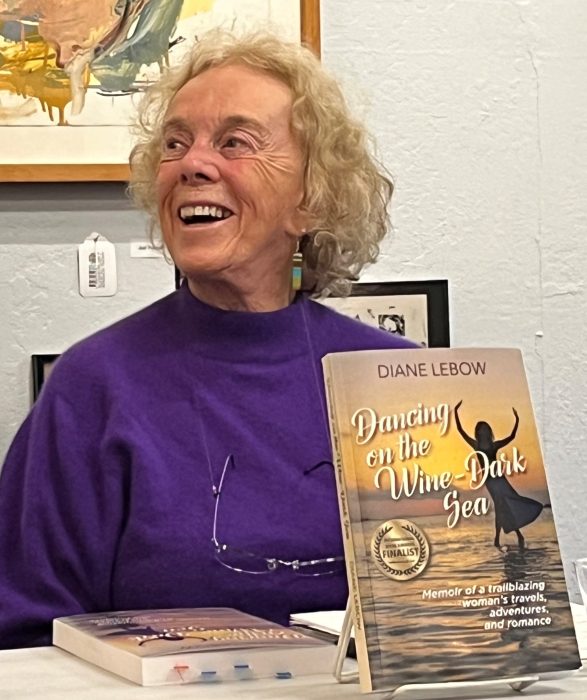
She married a Dutch medical student she met on the trip. They stayed in Amsterdam, where she taught English literature to teenagers at the American International School. Back in the United States, he found a job as a doctor at Stanford. But the marriage ended after nine years when it became apparent he wanted a family, with her at home as a “doctor’s wife, she said. “I was already a tenured college teacher and felt he didn’t value my work, and I didn’t want to give up my career.”
It was not the upset one might think. LeBow said she had envisioned a non-traditional life since she was a toddler. She was a tomboy who played with her brother and his friends. Pretending to write books at age four, she imagined herself as a writer, not wife and mother.
She began traveling more after she divorced, at first with others. But she soon realized, she said, “I was happier without the complications of a travel partner.”
LeBow’s self-sufficiency had been nurtured all along by Aunt Bea and her mother. Bea started and ran her company, employing her husband and several relatives. Her mother taught her how to defend herself against bullying boys, encouraging a take-no-prisoners spirit. “I kicked Stanley in the shins and his mother complained to my mother,” she said.
No to the status quo
Her resolve to rise above the status quo for women was only hardened by her experience at Penn State University. Nudged out of the pre-vet program, she said, “They told me I was only going to be married and have babies, and I was taking up the place of a man.” So, she gave that up but not her love of animals – she had been riding horses since she was seven.
She went on to train and ride show horses, and after moving to California, LeBow and her black Morgan mare, “Kelley’s Pretty Nino,” won national championships two years running. She also bought and sold horses, plowing the earnings into her homes, the last being her current blue Victorian in the Marina district.
Horses were the inspiration for at least one of her exotic trips: a trek by horseback in Outer Mongolia. “I just had to know what this Outer Mongolia that people always referenced, was like,” she said. “Since Genghis Khan, Mongols have been the world’s best horse people.”
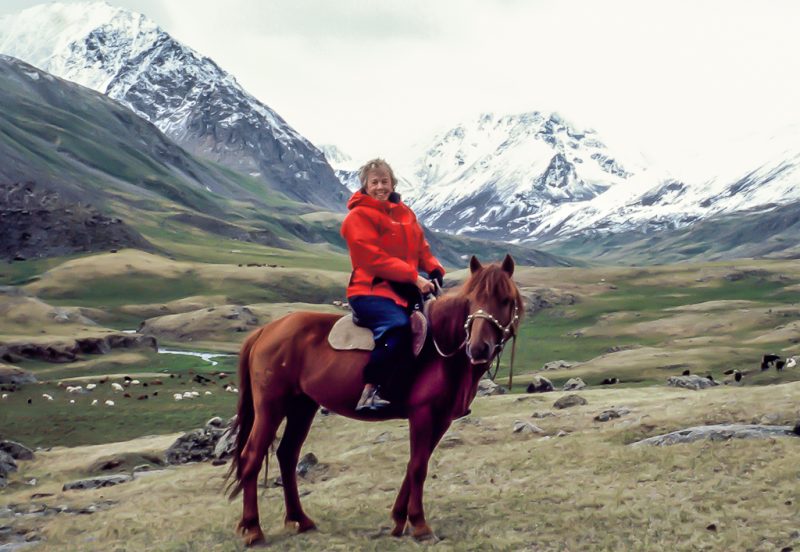
LeBow went on to make her mark in education as well as horsemanship. She earned a master’s degree in English literature in 1963 from the University of California-Berkeley, then taught at a Cañada Community College in San Mateo. It was there that she emerged as a prominent feminist scholar, developing some of the first educational programs focused on women. Women’s studies, college re-entry programs, and centers for education and support became models across the country:
“I created a lot of different programs, like Women’s Week, where I brought in well-known speakers like Anais Nin and Flo Kennedy, and encouraged every instructor to devise a theme, and include women’s issues in their syllabus,” she said. She later earned a doctorate in the History of Consciousness, with a focus on feminist history and women writers, at the University of California-Santa Cruz.
Teaching, with its monthslong winter and summer breaks, gave her plenty of time to travel. She visited almost 100 countries over her 35-year career. She always has felt exhilarated, she said, and never scared. “People give respect to teachers and writers. I was always taking notes, demonstrating my professional roles.”
As a teacher of feminist studies, LeBow was curious to see how women fared in different cultures. She spent a week with several hundred Afghan women exiles, some of whom she had met while living and teaching in France, on the border of Afghanistan and Tajikistan in June 2000. “The Taliban were still in power in Afghanistan,” she said, “and their treatment of women seemed the ultimate in man’s inhumanity to women.”
Action and organizing
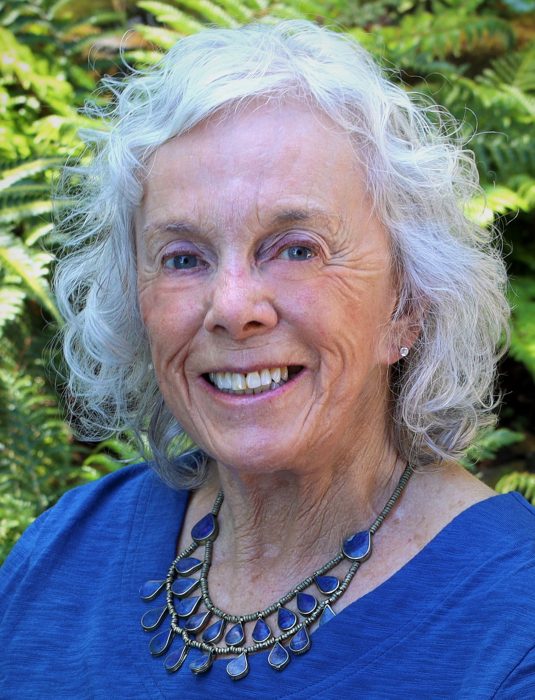
She assisted them in writing a Declaration of the Essential Rights of Afghan Women, a document signed by Kofi Annan, Former Secretary General of the United Nations, and President Clinton and incorporated into the new Afghan Constitution in 2001.
Such experiences whetted her interest in activism. Midpoint through her teaching career, she was invited to run for president of the American Federation of Teachers, a position she held for several years, “because I loved doing political action and organizing.”
She also got enmeshed in academic politics. To advocate for on-campus childcare for low-income students, she organized Black students from East Palo Alto to march on college board meetings. The chancellor called the idea a Communist plot to destroy the family, LeBow said. “Working for social change is not easy: Two steps forward, one step back.”
LeBow was also a founding member of the National Women’s Studies Association, further promoting feminist teaching, research, and service. At the end of her career, she was awarded a Lifetime Achievement Award from Douglass College at Rutgers University – her bachelor’s alma mater, including her work in the United States as well as study programs in Paris and the Netherlands. Retiring from Cañada College in 2003, she is now President Emerita of Humanities and Women’s Studies.
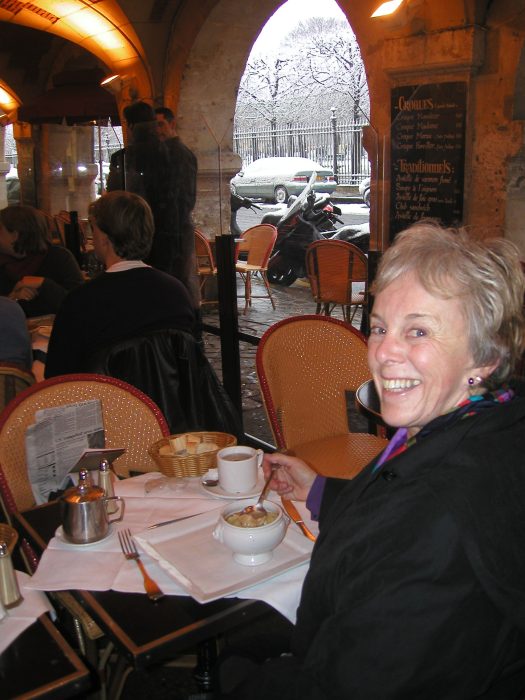
She attributes her social instincts in part to her parents, who raised her in Weehawken, New Jersey, an industrial town where “we played in the park where Hamilton and Burr had their duel.” She described them as humanitarians, doing for the less fortunate.
LeBow’s mother was an elementary school teacher, who volunteered to teach English to the children of the first wave of Cuban immigrants to settle in Weehawken. Her father, who owned a pharmacy, employed a handicapped driver. He hired Black workers, including a one-armed wallpaper hanger, to help him build his family’s vacation house on the Jersey shore.
Her parents stuck up for their friends when needed, she said. “One day we went to our private swim club – mostly to swim, you had to join a club at the ocean – with a Black couple. The guard stopped us at the gate, to which my father responded, ‘The color doesn’t wash off,’ and the startled guard let us in.”
While learning to ride horses, LeBow always became close with the stable grooms and trainers, many of them Black. “My best friends were the horse trainers who taught me the tricks that enabled me to progress,” she said.
She bought her first horse, a young mare she named “Nightingale’s Gay Girl,” at age 12 with savings and a gift from an uncle. She got to train on show horses during summers at a stable on the Jersey shore. “I was riding gaited horses, way above my pay grade, which were the high-stepping, American Saddlebred, the flashiest in the flashiest of classes,” she said.
After moving to California as an adult, LeBow went on to buy and sell other horses, including the Morgans that led her to her championship wins.
Even though she sold her last horse in 1978, she said, “I still dream of horses.”


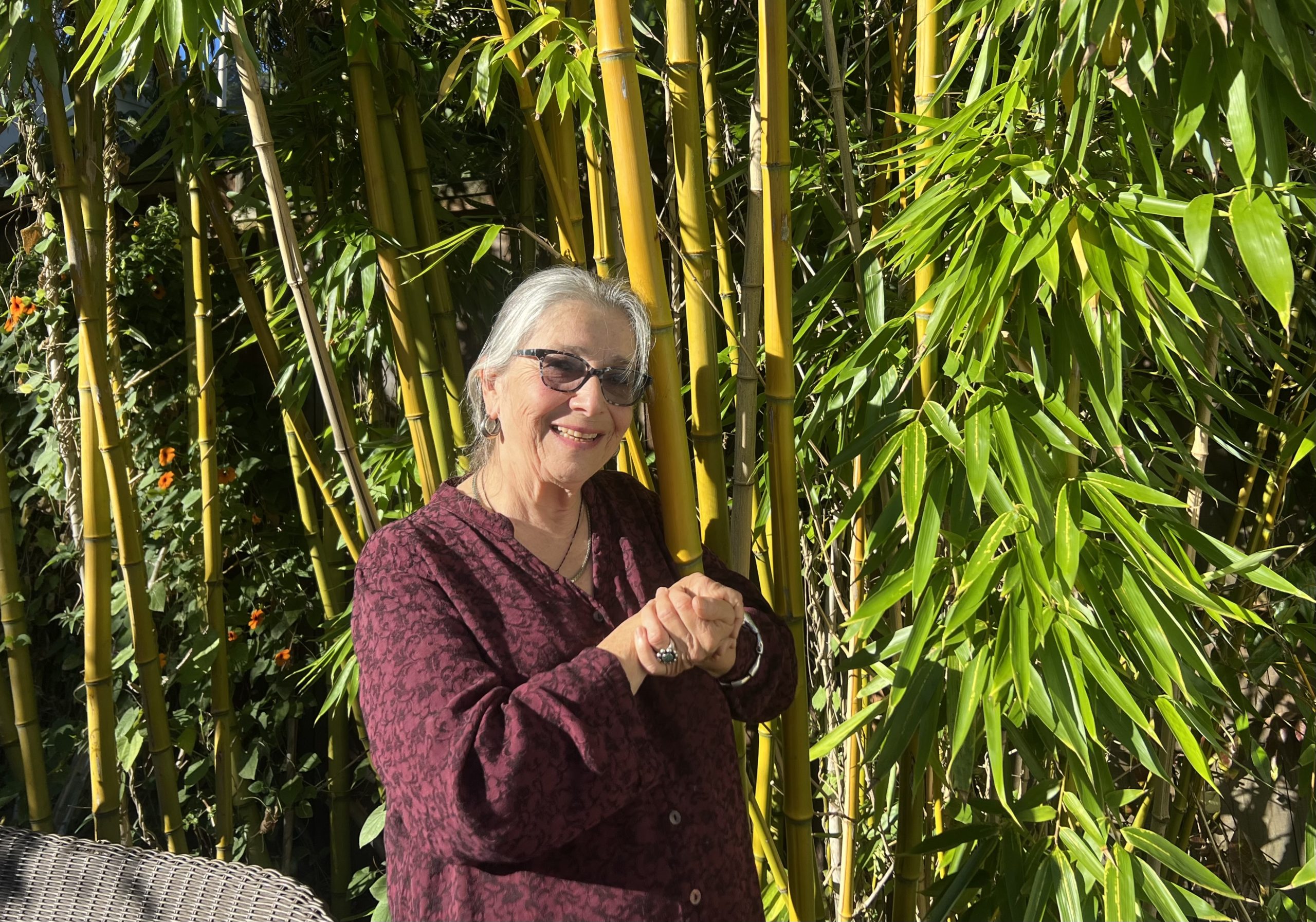
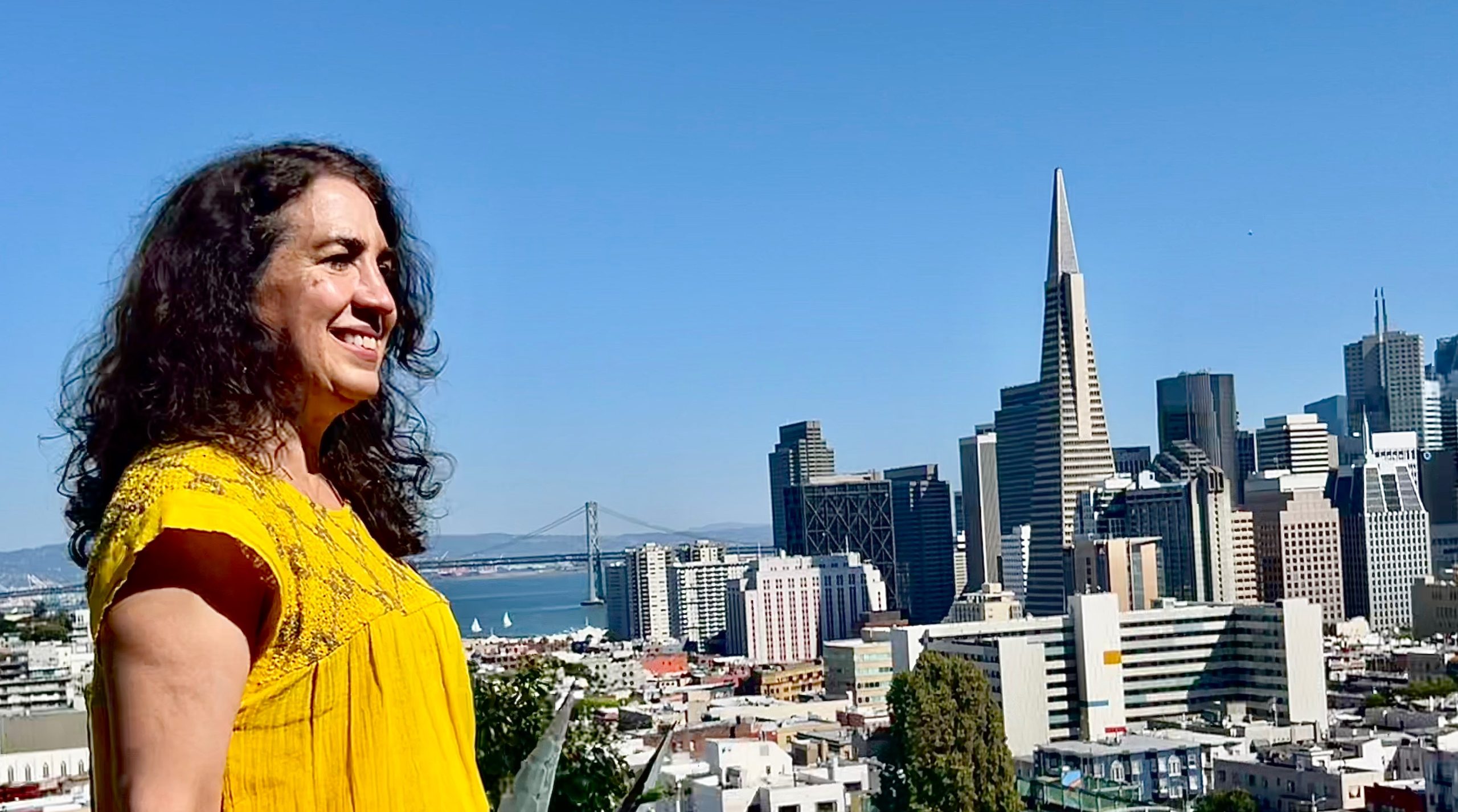
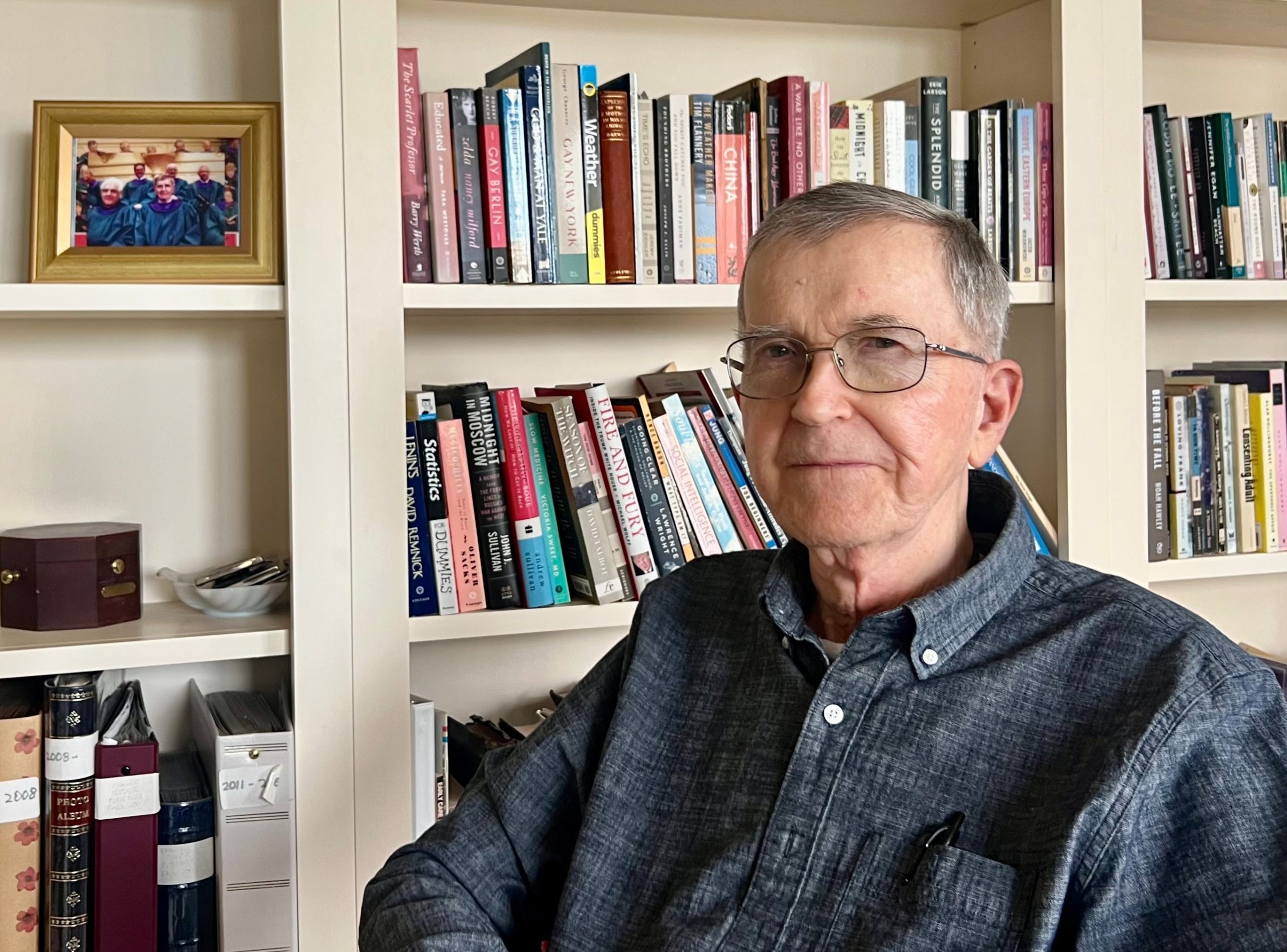

Jim Gebbie
I knew you were accomplished, Diane, but I had not idea to this extent. You go, girl! I'm proud to be your colleague and friend.
Karen Englander
Such an inspiring woman! Everyone should read her book, Dancing on the Wine-Dark Sea
Dina Lisha
I found this article very interesting, well written and inspiring! I thoroughly enjoyed reading it. Well done!
Susan D Alcorn
A very interesting article about a very impressive woman! Her many talents and travel experiences are inspiring! Great photos, too.